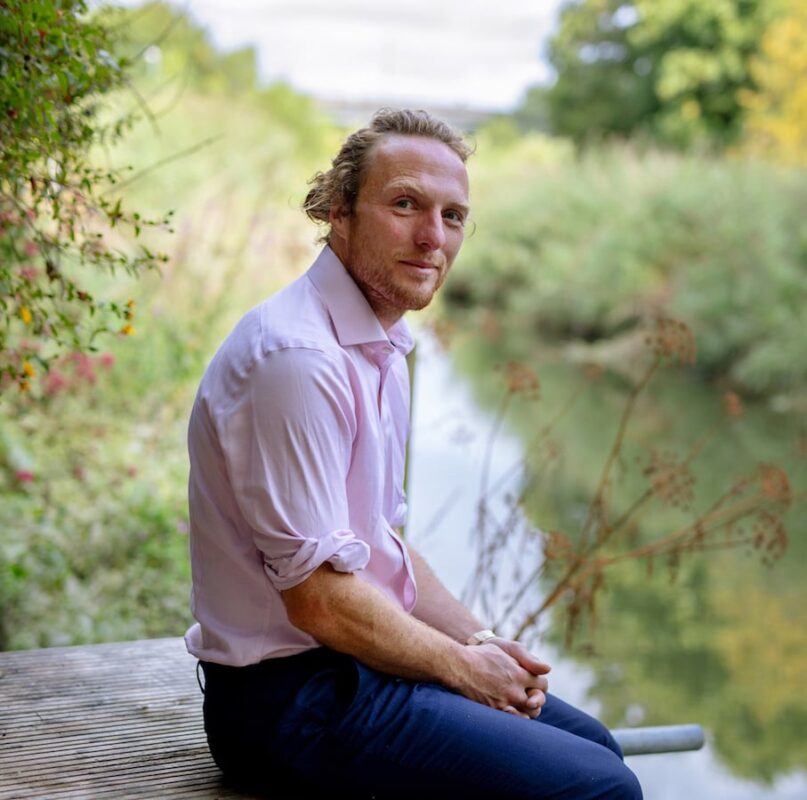“I swear by…” What? The options for members of a UK jury are fairly standard: ‘by Almighty God’, ‘by Allah’, ‘by Waheguru’, or ‘on the Gita’. Paul Powlesland chose none of these when he was called to jury service in July. Instead, the 38-year-old barrister opted for the River Roding, “from her source in Molehill Green” to her “confluence with the Thames”.
Powlesland admits that the judge was a “little perplexed” at first, but, after some discussion, he let the unorthodox oath slide. This was partly because Powlesland also declared the juror’s secular ‘affirmation’ (“to make sure the legal boxes were ticked”), but mostly because the judge believed the sincerity of the river lover’s position.
“I explained that I believe the river to be sacred, but also I could demonstrate that this wasn’t just something I was saying but that I do care for the river constantly in my spare time,” says Powlesland.
He’s not exaggerating. When not donning his barrister’s gown and advocating in court (usually on housing or employment issues), he’s dredging rubbish from the River Roding on his canoe, or planting trees or placing benches along its banks.
As founder of the River Roding Trust, Powlesland has made it his business to protect and help regenerate the 31-mile river, which rises in a patch of rural Essex and then flows west towards London, travelling under the M25 before ending up in the heavily urbanised borough of Barking and Dagenham.
The latter provides the mooring point for the 45-foot narrow boat that Powlesland has called home for the last seven years. Pretty as the reed beds that immediately surround his barge are, the barrister admits that the kilometre-or-so long stretch where he concentrates most of his conservation efforts is “on a knife edge”.
Something magic happens when you get to know a specific part of nature – and, for me, that’s the Roding
“Over the last 200 years, humans have completely abused it. Around me, there’s a motorway fewer than 100 metres away, and it’s surrounded by housing estates, warehouses, train lines and pylons.”
Even so, despite the sewage, the litter, the artificial channelling, the filthy runoff from the roads, the pollution from excessive pesticide and fertiliser use upriver, and so on, he still believes the river is “redeemable”.
So, what draws him to its recuperation? From a man who earns his living from his command of language, he’s surprisingly slow to respond. He doesn’t come from a family of environmentalists, he says, nor have rivers always grabbed his heart: his is a gradual passion born from years of living on the water (before Barking, he spent five years on the canals of east London).
You can decide right now to become a guardian of your local river, to hold it as sacred, and to look after and care for it on that basis
His eventual answer comes more as assertion than explanation: “Something magic happens when you get to know a specific part of nature and, for me, that’s the Roding.” Just as every river is different, so are the effects they have on different people, he concedes. But what all rivers have in common is their longevity: almost all predate us, and, likely as not, almost all will outlive us. In that primordial fact, there lies a respect, an admiration, an inversion of the human-centric narrative that we tell ourselves, he says.
His advice to others? Find a river nearby and just spend time on, by, or in it: walking its banks, watching its moods, wading in its shallows: “Naturally, over time, this time spent just instils a connection and love.” And from that love springs an equally natural desire to care for it.
Through Lawyers for Nature, an advocacy group he co-founded, Powlesland is pushing for the UK to formally grant rivers a legal right of protection. The jury is still out on whether politicians will act. In a way, it doesn’t matter, he says: more important is people power: “You can decide right now to become a guardian of your local river, to hold it as sacred, and to look after and care for it on that basis.”
So, quite rightly, does Powlesland solemnly, sincerely and truly declare.
Main image: Anselm Ebulue

